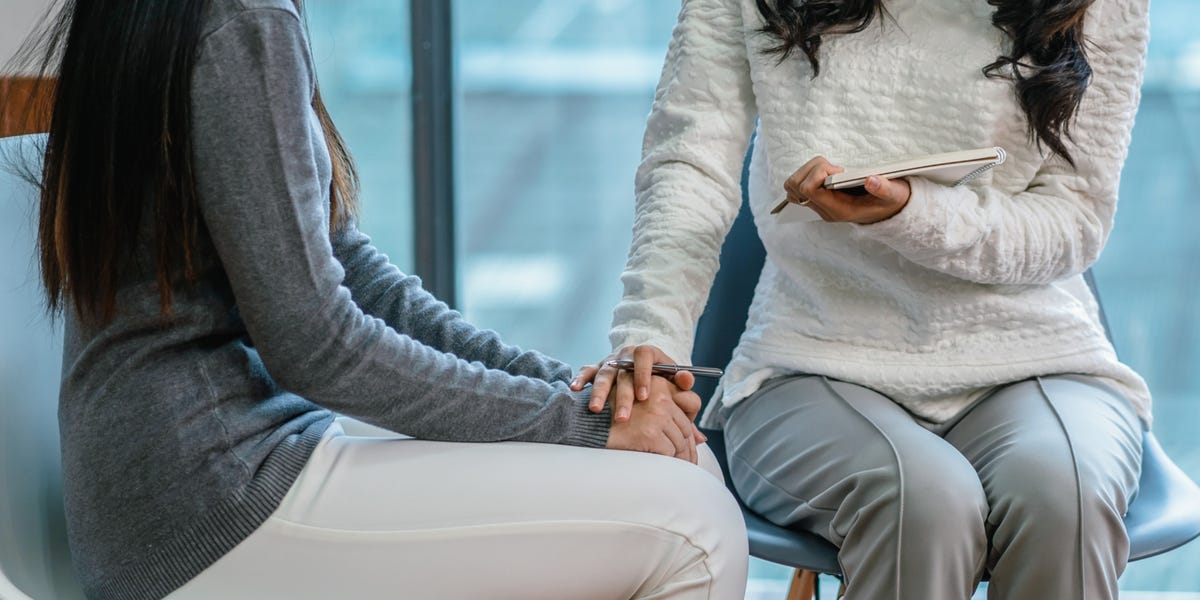When anxiety begins to feel out of control or affects your quality of life, it’s important to check in with a doctor and consider treatment, says Joseph Garbely, D.O, chief medical officer at Caron Treatment Centers in Pennsylvania.
Anxiety disorders affect about 18% of American adults each year. Common and effective treatments for anxiety can include lifestyle changes, therapy, and medications.
Here’s what you need to know about each type of treatment and what might be best for you.
Lifestyle changes are an important part of calming anxiety, whether you have an anxiety disorder or not.
“If you find that you are not at risk of harm from the anxiety, you may prefer self-help at first,” says Alessandro De Nadai, Ph.D., assistant professor of psychology at Texas State University.
Here are common treatments that you can use yourself to calm anxiety:
Many people with anxiety disorders benefit from cognitive behavioral therapy (CBT).
During CBT, a therapist helps people confront their anxiety little by little, so they can learn to better control their reaction. Exposure therapy is one type of CBT that is particularly helpful for anxiety. De Nadai explains that these therapies focus on one main goal:
“The best treatments involve an element of practicing anxiety-provoking situations together with a therapist,” De Nadai says. “With practice over time, the situation will make someone less and less anxious.”
In fact, about 60% of people who finish CBT will have “substantial improvements” to their anxiety, according to research from the University of North Carolina. This typically happens within 12 to 20 sessions.
CBT can be delivered online or in person, and within group or individual sessions. A 2019 study also found that people with social anxiety, generalized anxiety, and panic disorders who had CBT online for a year experienced a significant reduction in their symptoms.
“Throughout treatment, tasks that once seemed impossible — such as public speaking — become less intimidating and are eventually conquered,” says Garbely.
Most people get some relief from CBT between 12 and 16 weeks after they start sessions. Oftentimes, therapy will be used alongside medication.
Medications are the most effective treatment for quickly reducing anxiety, says Ryan Sultan MD, an assistant Professor of Clinical Psychiatry at Columbia University in New York.
In fact,roughly 50% of people who take medications will have a reduction in their anxiety symptoms.
“Anti-anxiety meds, such as benzodiazepines like Xanax, act as fire extinguishers for episodes of anxiety,” Sultan says. “Shortly after taking the anti-anxiety medication, your anxiety rapidly reduces.”
These medications are often prescribed as an on-needed basis, so people take them when anxiety spikes. But many people also take other types of daily medication to control anxiety symptoms and prevent episodes of intense anxiety.
Here are four common types of anxiety medications:
Medication for anxiety should be overseen by a doctor and used alongside therapy. Eventually, your doctor may talk to you about weaning off medications, but this should only be done with medical oversight — because stopping anxiety medication suddenly can be dangerous.
“Medications help lower anxiety enough to allow you to successfully benefit from psychotherapy,” Sultan says. “After completing the psychotherapy with the aid of the medicine, you may no longer need the medicine.”
Overall, for most people, a combination of lifestyle changes, therapy, and medication can help them successfully manage anxiety.
“Research on the treatment of anxiety disorders overwhelmingly supports that people do best with a combined treatment approach with lifestyle, CBT, and medication at the same time,” Sultan says.
